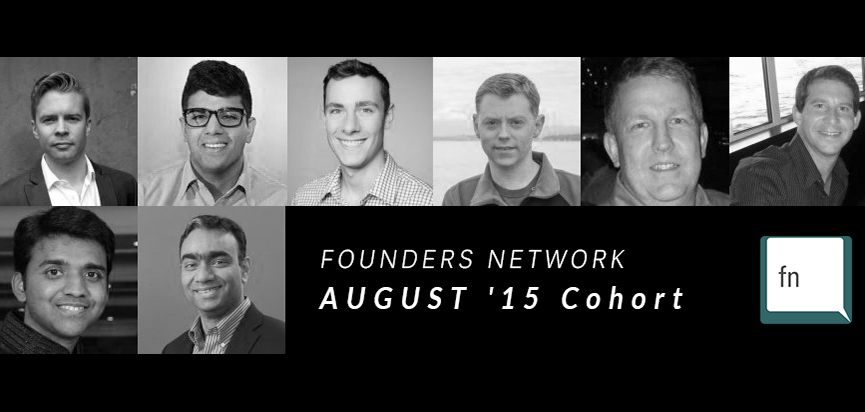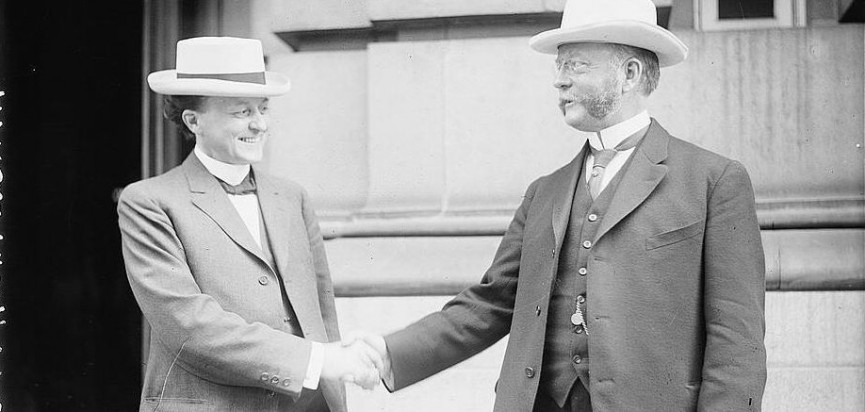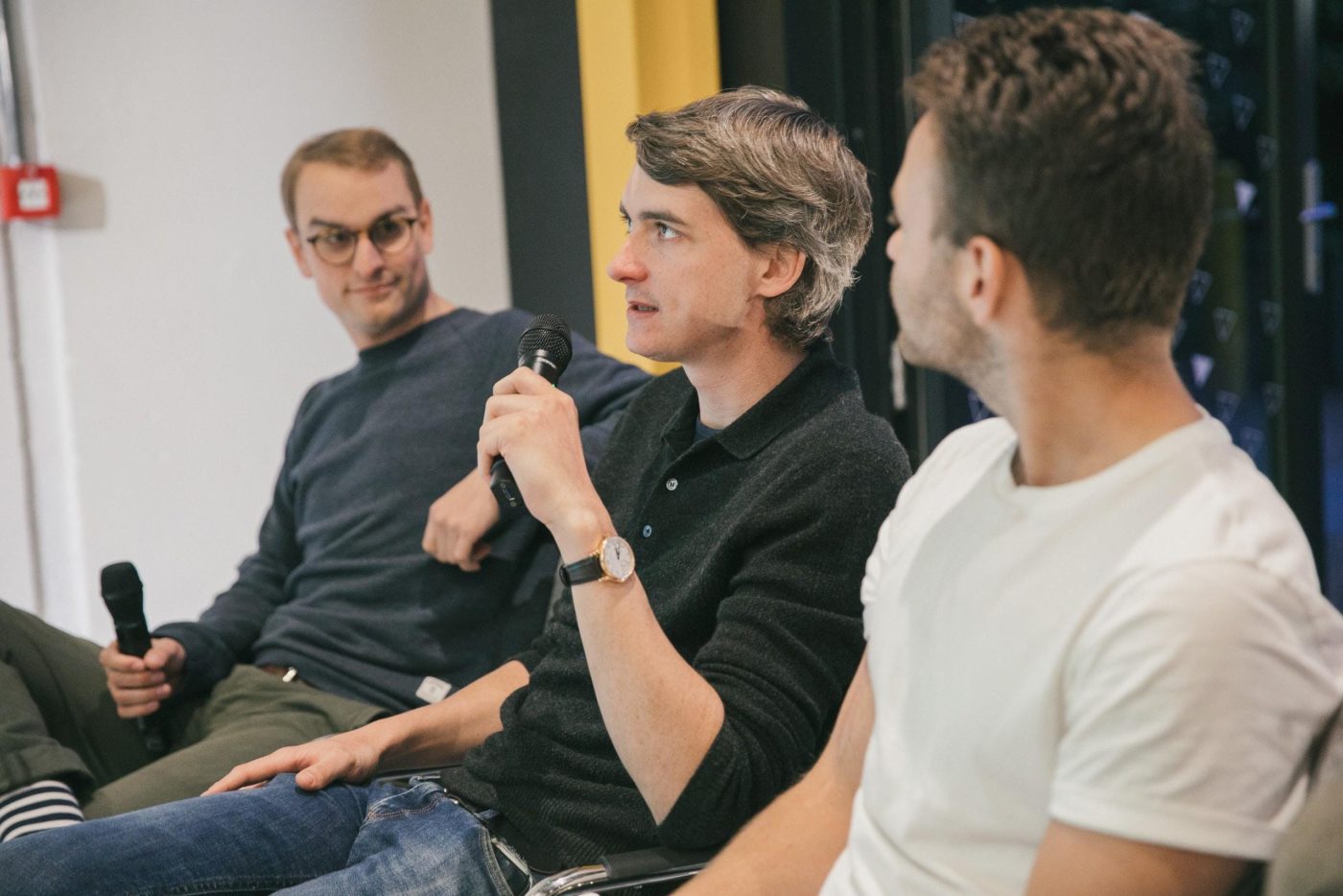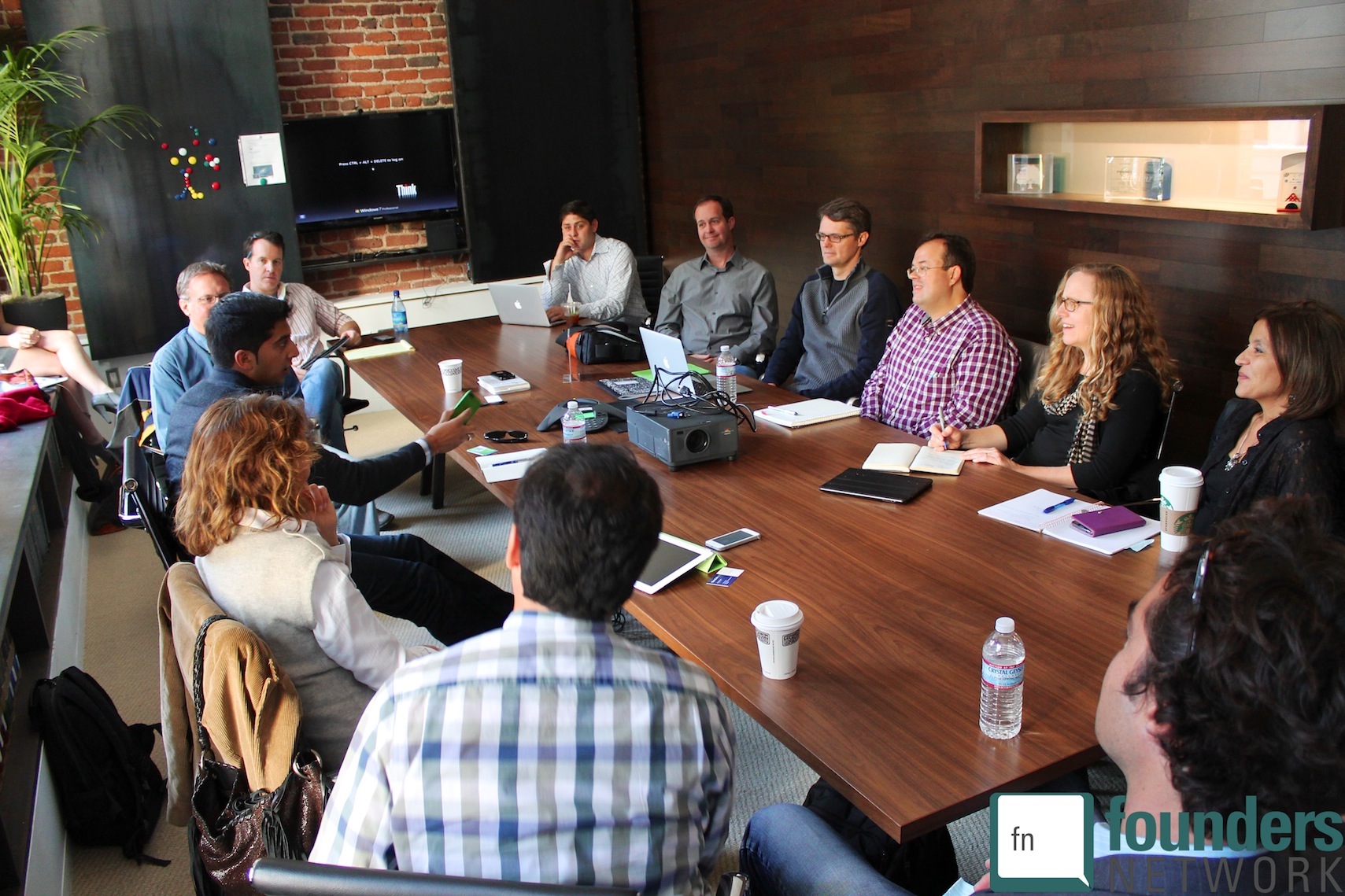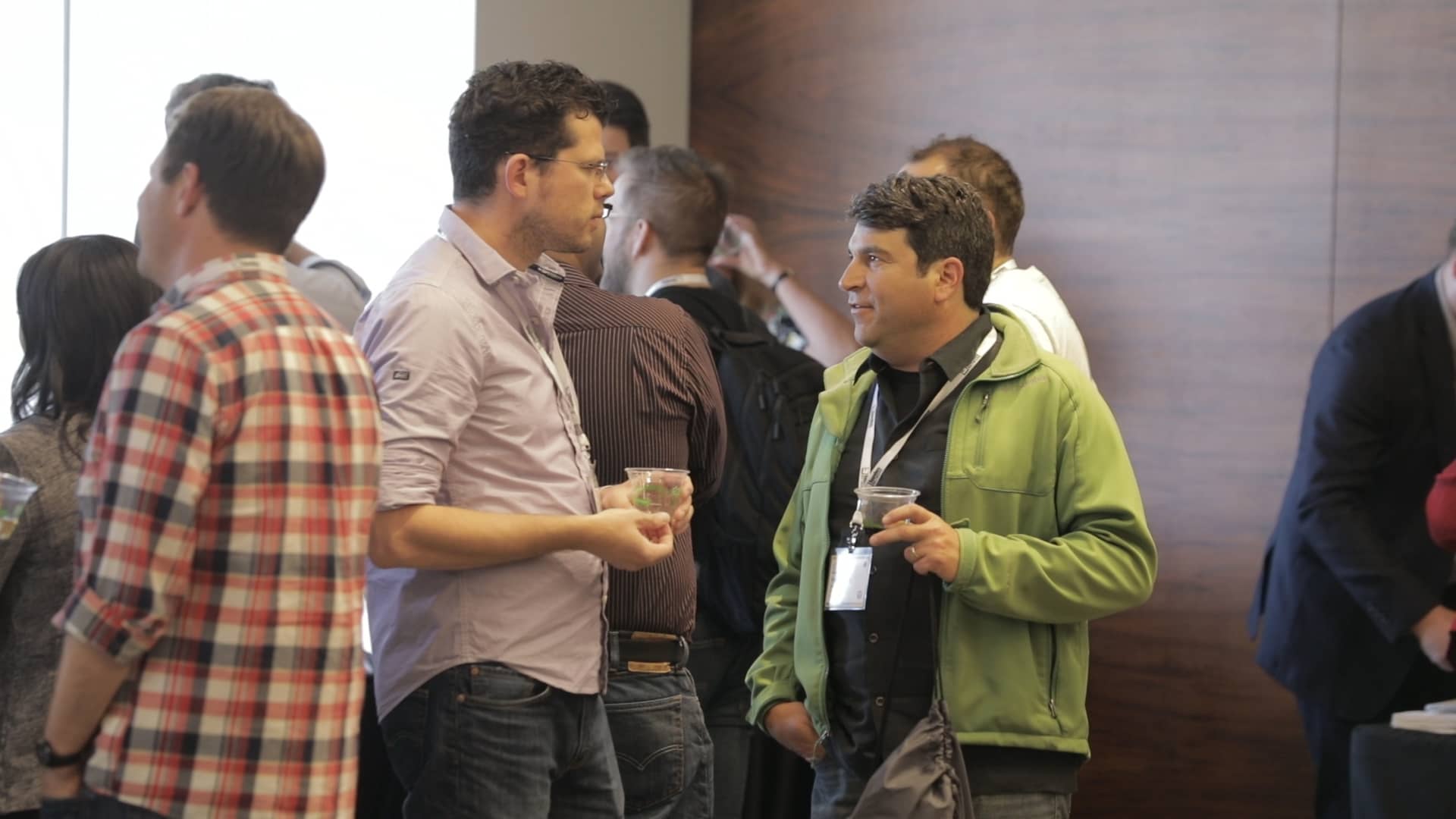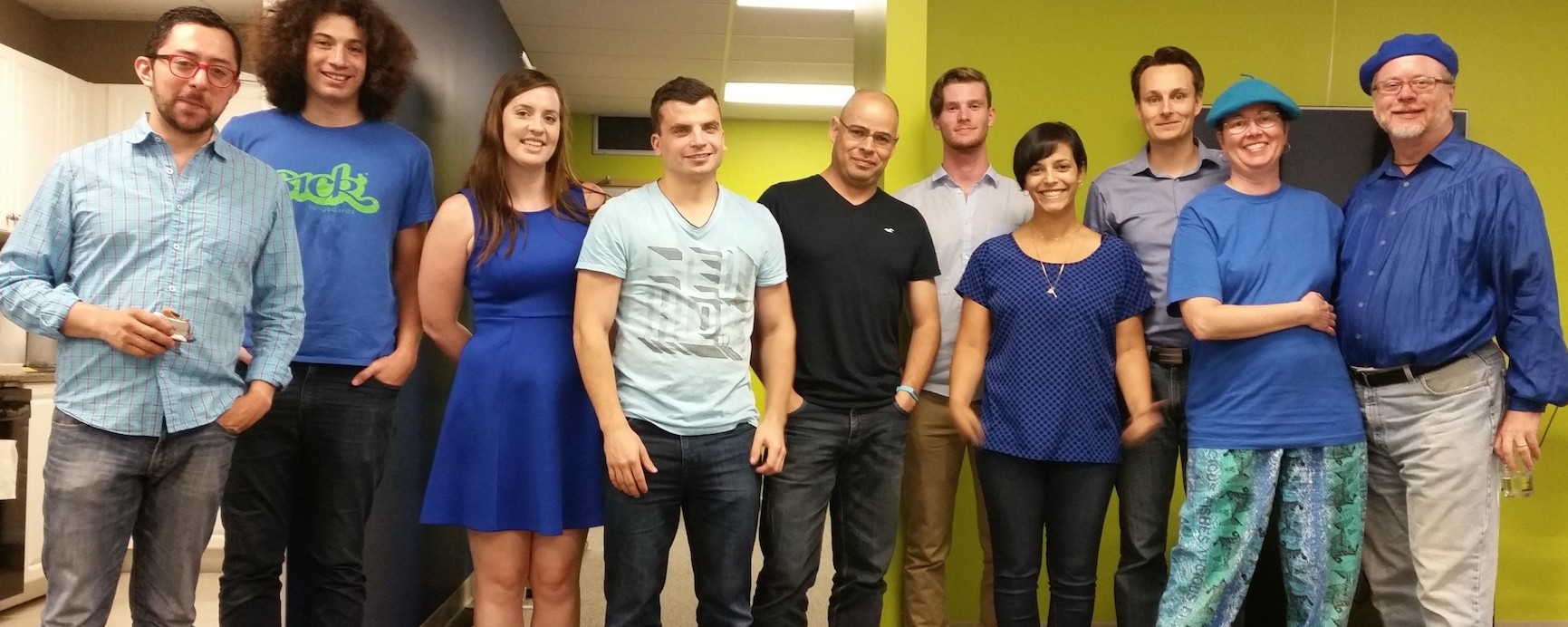
A three-hours drive from Seattle, a three-hour flight from San Francisco, Vancouver is regarded as the “lifestyle” pick among Canada’s tech hubs – housing prices are high, but its location in the midst of gorgeous British Columbia wins out.
Although Vancouver is still famous for its timber industry, film productions and tourism, conferences ranging from Grow to TED have put it on the map as a place to think globally. And local incubators, technical schools and Canada’s progressive visa policy are increasingly producing an influx of junior talent.
The city isn’t huge, and some entrepreneurs characterize the relatively small population as fond of the status quo – or at a minimum, modest about how they acknowledge ambition. That’s part of why founders like Alexandra Greenhill (March ‘15) form tight networks with those who are moving aggressively, and try to magnify that effect from Vancouver outwards.
SMALL GROUPS GROW NEW MINDSETS
“This is a generalization – it’s not always true – but there’s a mindset when you speak to the average person in San Francisco,” Greenhill says. “They start with a question – how can I help you, what is it you need. That mindset is missing here. More often, you’ll hear the comment, ‘you can’t be the next Twitter.’”
Greenhill’s response: “Why not?”
That perspective – that every startup might look like a moonshot on some days, but we can help each other make it – is the missing link, according to Greenhill. The Vancouver chapter they’re building is based on that premise.
Greenhill – named one of Canada’s 100 most powerful women in 2005 – turned from her past as a doctor and health system technologist to entrepreneurship in 2011.
“Healthcare doesn’t move fast enough for what I want to do,” as Greenhill put it. “We have amazing tools that optimize our every social and work lives – but they simply don’t exist for families. That’s the next big trend that people are missing.”
Her startup myBestHelper.com connects caregivers with families coordinating just-in-time help for child and elder care, often through a combination of friends, family and paid providers. Greenhill raised $275k in a pre-seed angel funding from friends and advisors, and is about to close a seed round.
“We want to use tech so people can help each other, and do so by bringing together the online and offline,” Greenhill says.
“We found a solution that works really well in Vancouver and people said ‘Perfect, just do that.’ We said no – our objective is not to become the best known company in Vancouver or Canada or the U.S., but to solve this global problem,” Greenhill says. “Five years ago this would have been a crazy intent, but now with Stripe and PayPal and tools that automate the problem of getting into different countries, all of that difficult adaptation is gone.”
“I think a lot more people need to wake up to the idea that you can go faster,” Greenhill says. “A startup iterates until it finds a fast enough path.”
“A startup iterates until it finds a fast enough path.”
IN THE LAND OF TIMBER, TECH TAKES ON EVERY SECTOR
People once thought of digital media when they talked tech in Vancouver – gaming companies like Electronic Arts, Radical Games and Blast Media were among the first in town. But diversification is becoming more and more evident.
Accelerators have multiplied, starting to expand across a startup’s early life cycle – Launch Academy polishes ideas, Invoke Labs supports a team to minimum viable product, and coworking spaces like the HiVE and resources like the Vancouver Hack Space provide ongoing community.
The city also includes outposts from the heavyweights: Facebook has effectively off-shored employees who can’t secure U.S. visas – a “temporary labor camp,” one might say – and Amazon, Salesforce, Microsoft and Samsung opened Vancouver offices.
Schools ranging from University of British Columbia to the design institute Emily Carr are producing a new generation of talent, but often experience must still be imported. Labor is surprisingly cheap – tech salaries are 15 percent or more below equivalents in the U.S. – but the cost of living isn’t necessarily a steal for the workers making those salaries.
After he founded Awesense, Mischa Steiner-Jovic (April ‘15) was one of many FN entrepreneurs who identified the lack of senior talent as a pain point in Vancouver. They’re tackling energy loss in electrical grids – a problem that costs more than $200 billion a year world-wide. His enterprise cloud analytic software and sensors help utility companies identify, quantify and mitigate losses in their grid.
A DIVERSE TALENT POOL, BUT SHORT ON SENIORITY
“We’re way above our weight class, in terms of technical talent,” Steiner-Jovic says of the engineers coming out of local universities and moving to the area under progressive visa policies – but that pool has limits: “We have a fairly small population, so on the senior level it’s challenging. We simply haven’t had that level of operation yet – the experienced people who have scaled.”
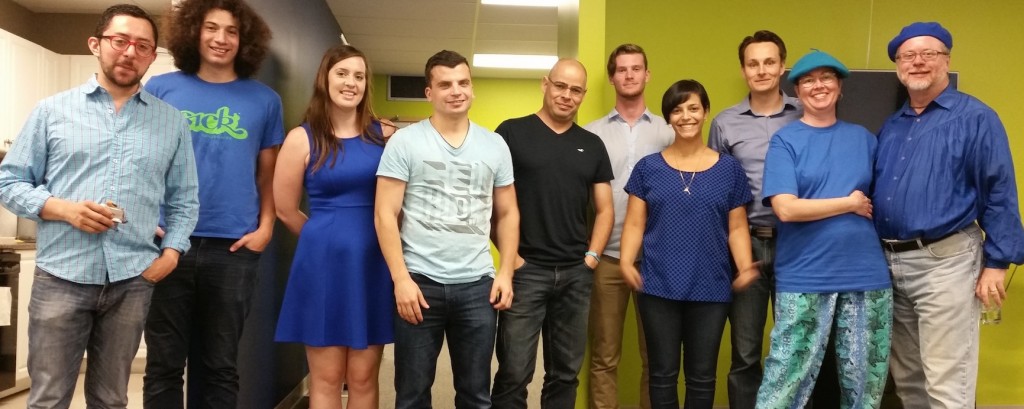
Mischa Steiner-Jovic’s team at Awesense celebrating “Blue Day,” a mysterious office tradition
How did Steiner-Jovic attract an executive team? “It took a lot of convincing,” he says. “Part of your job as an entrepreneur is to convince people of your mission and vision – and that’s no different with these guys. We’ve calculated our market opportunity and it’s above $10 billion a year, in terms of what we could generate in revenue. The opportunity is there – now it’s just a team to execute on that.”
There aren’t many utility companies in Western Canada, but Awesense started in the Okanagon and worked outwards, showcasing what they could do as engineers. They benefited from the British Columbia Innovation Council’s Entrepreneurship@Wavefront program, an accelerator that included office space, and raised an angel round in 2012 and a seed round in 2014.
“The drive that people have in Silicon Valley to change the world is not prevalent everywhere else, in other startup cities,” Steiner-Jovic says. “I hate to use that term, startup cities, because you can really build a business anywhere, it’s just a question of where can you attract the talent to become a massive business.”
VANCOUVER FUNDING IS LIMITED – BUT GOVERNMENT BUY-IN HELPS
Electronic Arts operates a major hub in the metro area, Hootsuite reigns as something of an elder statesman among fast-growing startups and recent exits by entrepreneurs like Marcus Frind (sold PlentyOfFish to Match for $575 million in July) are bringing capital and experience into the ecosystem.
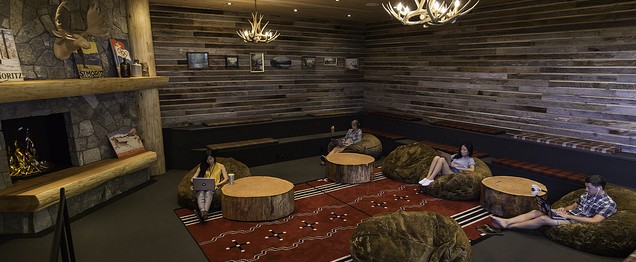
As a magnetic employer and supporter of new startups, Hootsuite is helping change Vancouver startup culture – the sunken lounge from their HQ is pictured here.
But average seed and Series A funding deals come in at 30 percent below comparable rounds in Northern California, and half a dozen VCs have set up shop in B.C. – compared to 25+ in Menlo Park alone.
“Without question, when we do decide to raise more, I’ll be hopping on a plane,” Steiner-Jovic says of future steps for Awesense. “The majority of the inbound interest comes from New York and Silicon Valley. I think people have realized that you can build a billion-dollar company anywhere.”
Federal, provincial and city tax breaks make Vancouver tech-business-friendly, and it’s recent history as a film and game industry mecca add a little holiday to its history as a timber center.
Janice Cheam (April ‘15) co-founded a Vancouver-based company – dubbed “most promising start-up company of the year” by the B.C. Technology Industry Association – that provides consumer home intelligence technology. She made waves when Neurio, a product designed to help householders save on electrical bills, took off on Kickstarter, tripled its initial goal of raising $95k in manufacturing costs and, more importantly, validated their market fit.
Although their market is worldwide, they’ve grown to a team of 30 in Vancouver as they’ve ramped up production and prepared a second product (launching next month!).
“It crossed everyone’s mind that we could move down to the Bay Area, but the financial incentives from the Canadian government are really attractive to bootstrapping companies,” Cheam says. “For us – not having a lot of financial resources to start and already having found the talent we needed – it was easy to stay.”
The same equation that boosted Cheam served Christine Pilkington (April ‘15) last year, when paid 33 cent cents on the dollar for one project, courtesy of credits from the Canadian government. Her latest venture, JellyBeen, connects parents with local places to eat, shop and play and attracted government funding for mobile-first initiatives. She says grant opportunities like that – particular in Vancouver – have had a snowball effect, nurturing local ideas and growing support networks – formal and informal – for the entrepreneurs themselves.
“More people are braving this world as they see others who have gone before them. Founders beget founders.”
“More people are braving this world as they see others who have gone before them. Founders beget founders.”
Pilkington has known some Founders Network Vancouverites for years – Mark Fromson (Aug ‘15), LocalSolo’s founder, since 2001. She says that particularly outside Silicon Valley, you need to build a founders peer group – if only for the reminder from others that what you’re doing isn’t crazy.
“It’s still capital-intensive thing just to get started, build an MVP and prove out your business model. You put in this money and effort and ask, am I crazy?”
HELPING EACH OTHER IS THE ONLY WAY TO TACKLE COMPLICATED PROBLEMS
There’s also a steady education to be had in this peer group, on a daily, granular level. Last week, Pilkington was talking through her experience launching a sales team with Greenhill’s cofounder. And, she notes, she now knows people through Founders Network so that next time she’s in San Francisco, there’s a standing opportunity to meet, work out of an office, and connect further.
“There are an awesome number of tools available to people within Vancouver, but the opportunity to connect to the global community is key, because otherwise you become too insular,” Greenhill says. “The opposite is also true – there is strength in face-to-face conversation that is different to anything you can post online anonymously in writing. The two work really well together.”
“All the people we’ve nominated share that mindset – and there’s a safety in knowing that everybody here understands the ‘founders code,’” she says. “The fact that it is selective in nature – being only founders – but includes people at different stages within the network – is actually very interesting. No matter how fast you’re growing, somebody just starting a new company can still help you with their lessons learned.”
HOME-GROWN RESOURCES ARE GROWING THE FOUNDERS POOL IN VANCOUVER
Since Daniel Dubois (Aug ‘15) launched Shareshed earlier this year he has already gotten a crash course in local tech culture as one of BC Business’s “30 under 30.” Program’s like Hootsuite’s Next Big Thing – where Dubois set up as an entrepreneur in residence – spread experience vertically from Vancouver’s first successes. Roger Hardy, who started Clearly Contacts and co-founded shoes.com, started in a VC fund that invested in ShareShed among other startups.
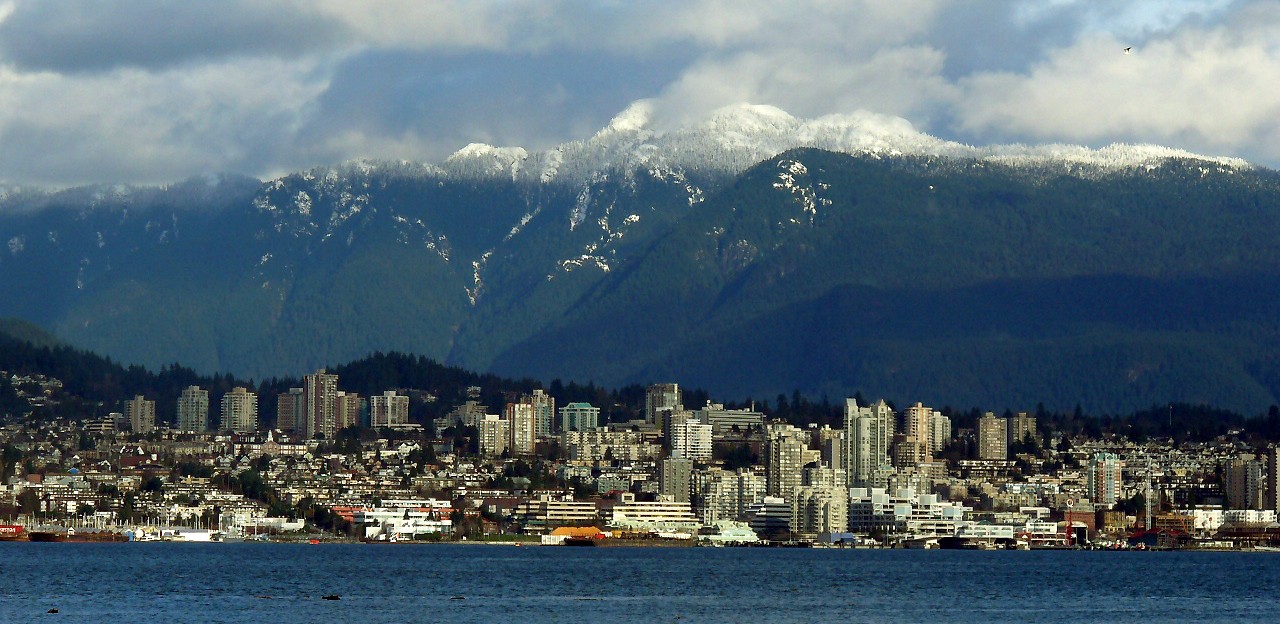
Woods, peaks and sea make Vancouver a desirable place to live – and built an instant market for ShareShed.
ShareShed connects people who have outdoor equipment, like skis, kayaks or snowshoes, to those who want to rent or borrow it for the day. Dubois is just wrapping up a soon-to-be-announced seed round with Hardy and Holmes among other investors.
“It’s like the PayPal Mafia,” Dubois says – only half-kidding as he referenced the increasingly iconic “maple syrup mafia.” “Ryan Holmes (Hootesuite’s founder) is extremely passionate about not just building a successful business, but playing a role in building an ecosystem in Vancouver as a whole.”
“I feel extremely fortunate to be on the inside of it – I can’t even take credit, I feel like it’s being in the right place at the right time,” Dubois says.
“Someone like Alexandra (Greenhill) is also a pillar for the startup community – she’s just one of those people where every conversation she asks, how can I help.”
Dubois turns to his Vancouver founders connection and FN as a whole to find situational advice you can’t dig up in an article on, including subjects it’s tough to have a conversation around, such as specific investor situations or the dynamics of a founder’s equity split.
“In the Bay Area, you’re exposed to two assumptions: there is a bigger world out there, and we’re here to win,” Cheam – Neurio’s founder – notes approvingly. “Canadians are more modest – I’m more likely to second-guess myself if I say something like that to an investor or mentor here.”
Vancouver founders who share that semi-secret ambition find each other, in places like the Founders Network Vancouver Advisory Panel, and they find peers who magnify it.
“I needed a forum where I could shamelessly talk about the business and ask questions about it – and have it not all be about a fun time,” Cheam says of adding a peer group beyond her personal friendships with other founders.

